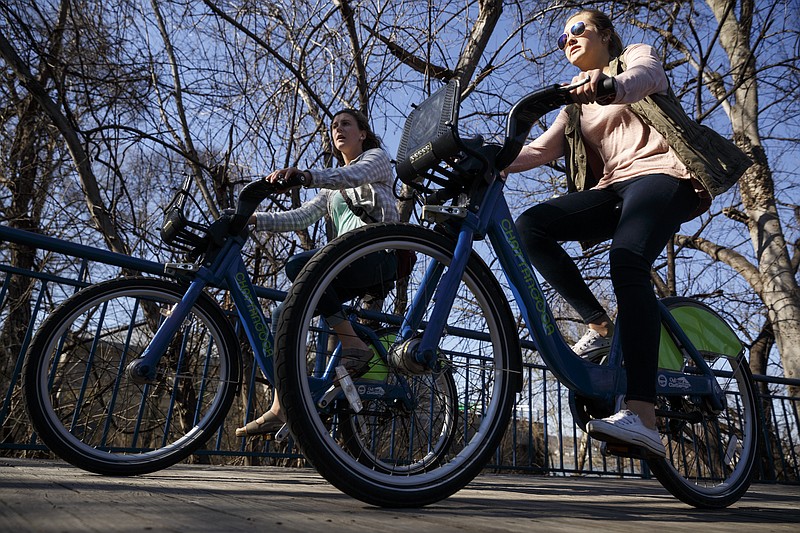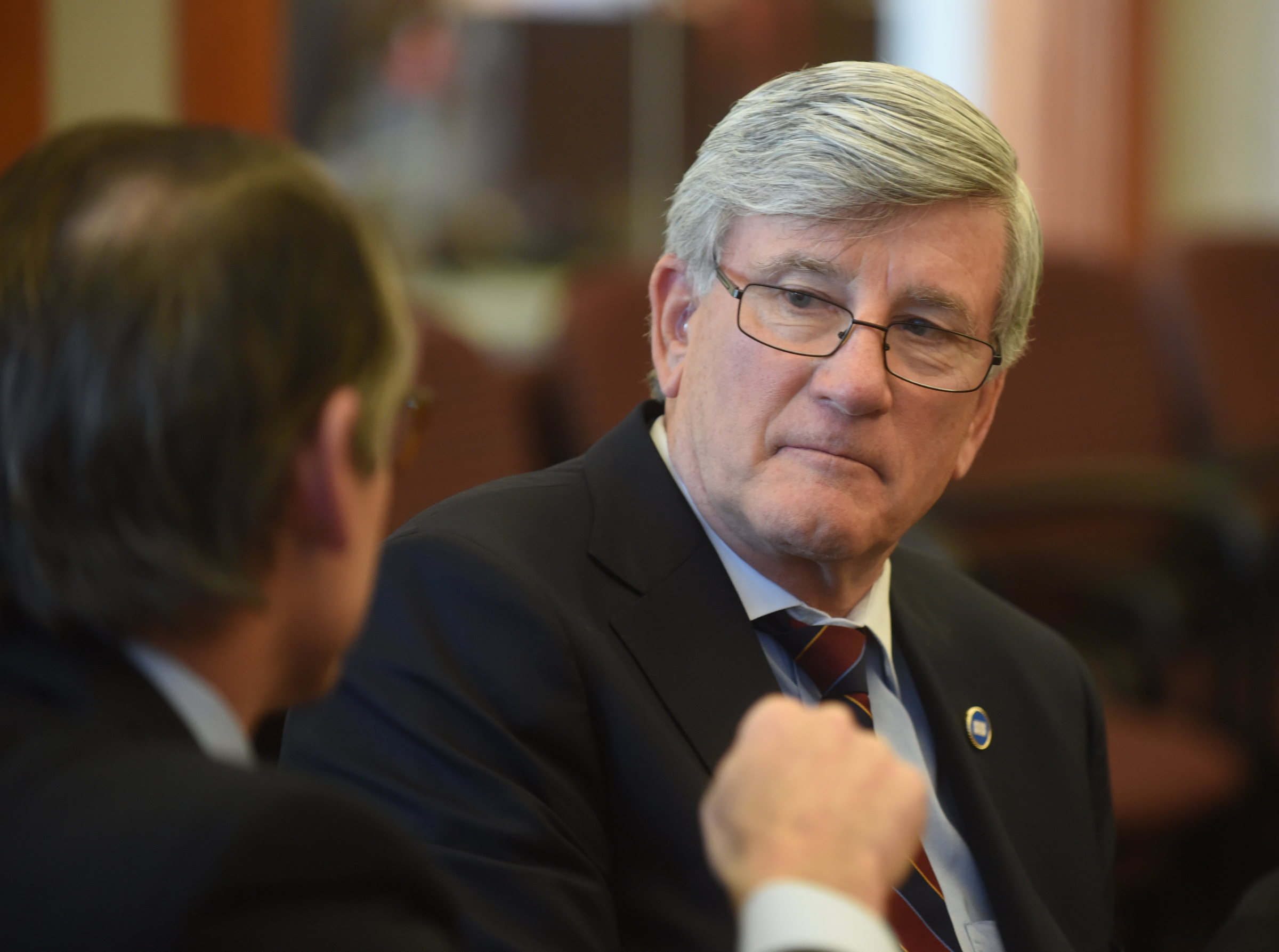State Rep. Mike Carter said he had no idea a firestorm would ensue when he filed House Bill 1650.
That firestorm is the largest mobilization of bicycle advocates in state history, according to BikeWalk Tennessee Executive Director Matt Farr.
And it's all over a bill that has yet to be heard in the House Transportation Subcommittee.
The bill, sponsored by Carter, R-Ooltewah, in the House and Sen. Todd Gardenhire, R-Chattanooga, in the Senate, would ban the use of state gas tax revenue to pay for many bicycle and pedestrian transportation projects.
It comes as the Tennessee Department of Transportation grapples with $6.1 billion in backlogged road projects that Gov. Bill Haslam has said could take 50 years to complete if the gas tax isn't raised soon. The last increase was in 1989.
"My bill was simply this: If we're going to go to the people and say that it's time for a gas tax increase, do we not owe it to them to be able to tell them transparently where every nickel of that tax goes?" Carter said.
Haslam has tabled any gas tax increase in this year's legislative session. But the conversation around the TDOT backlog is ongoing, and Carter and Gardenhire have little doubt a gas tax increase will be proposed at some point in the near future.
So Carter decided to put a magnifying glass on the current gas tax of 21.4 cents per gallon, which generates more than $600 million annually for TDOT and local transportation projects.
Though it's been difficult for anyone involved to determine exactly how much gas tax revenue is spent on bicycle improvement projects, Farr and other critics of the bill are pedaling hard in opposition. Farr said losing the money would hurt the state's growing bicycling infrastructure.
"It would significantly impede state and local abilities to implement bike and pedestrian projects across the state," Farr said Sunday as he traveled back to Chattanooga from Nashville after a week of campaigning against the bill around the state.
The House Transportation Subcommittee is set to hear the bill March 2. It was set for Wednesday but Carter said TDOT officials will be in Washington, D.C., then.
BikeWalk Tennessee launched an online petition terming the bill dangerous and saying it would undermine tremendous progress made over the years for bicycling and walking in Tennessee.
The petition had 2,830 signatures Sunday night, and House Transportation Subcommittee chairwoman Terri Lynn Weaver said last week she had an email inbox full of messages from bill opponents.
"There is huge opposition to this bill," Farr said. He cited several biking advocacy groups that have teamed up with his group to fight the legislation, and added that national groups such as the Rails to Trails Conservancy are standing against it as well.
"I can't say with certainty where all the legislators on the committee stand," Farr said. "But I would be sorely disappointed if they don't take this broad base of opposition into consideration when they place their votes."
TDOT said the original version of the bill would have jeopardized the nearly $875 million in federal transportation funding that the state is slated to receive in the 2016-17 fiscal year. It would have resulted in a violation of the Americans with Disabilities Act and the Rehabilitation Act by preventing expenditure of gas tax money on sidewalks.
An amended version is less sweeping but still greatly restricts state gas tax revenue spending on anything other than construction, improvement, maintenance and operation of highways, bridges and other vehicular transportation infrastructure.
TDOT spokeswoman Jennifer Flynn said about 1 percent, or $18 million, of the department's $1.8 billion annual revenue is spent on bicycle and pedestrian facilities. The state gas tax comprises about 21 percent of the department's budget.
Gardenhire said "the basic needs of the community" should take precedence over bike projects.
"This is not an issue of whether or not Todd Gardenhire wants bike lanes," he said. "It's who pays for it. If this project of bicycle lanes is so near and dear to people, then we have city and county governments that can fund them."
Contact staff writer David Cobb at dcobb@timesfreepress.com or 423-757-6249.

